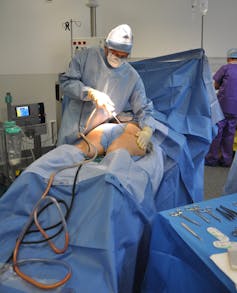Why Cosmetic Surgery Mental Health Screening Plays a Key Role for Long-Term Satisfaction
Exactly How Psychological Analyses Enhance Aesthetic Surgical Procedure Results
The assimilation of psychological evaluations into the cosmetic surgical treatment procedure is significantly identified as a critical element in accomplishing ideal end results. By thoroughly examining patients' psychological and mental states, cosmetic surgeons can gain useful understandings into their inspirations, assumptions, and potential mental obstacles. This extensive understanding not just educates surgical decisions however additionally promotes a clear dialogue between individual and service provider. As we explore the subtleties of this strategy, the implications for both individual fulfillment and lasting psychological wellness ended up being noticeable, increasing crucial questions concerning its duty fit the future of plastic surgery.
Comprehending Psychological Analyses
Psychological evaluations in the context of cosmetic surgical procedure function as vital devices to examine a person's psychological and psychological readiness for medical treatment. These assessments are made to determine underlying mental problems, such as body dysmorphic condition, depression, or anxiousness, which may influence an individual's expectations and complete satisfaction with medical outcomes.
The process usually entails organized meetings, standardized sets of questions, and scientific evaluations administered by qualified mental health specialists. By systematically checking out an individual's inspirations for looking for cosmetic surgery, these examinations help to recognize whether the wish for surgical procedure comes from reasonable self-improvement objectives or from much deeper mental concerns.
Additionally, psychological assessments can facilitate educated decision-making by making sure that clients fully recognize the potential dangers and benefits related to aesthetic treatments. This understanding is essential for aligning person expectations with realistic results, inevitably contributing to a more satisfactory medical experience.
Additionally, these assessments can determine people who might profit from preoperative emotional support or counseling, thereby enhancing their general health. Thus, recognizing emotional assessments is important for maximizing both the mental and surgical results of plastic surgery.

Benefits for Clients
The application of emotional assessments in plastic surgery supplies numerous benefits for clients, substantially boosting their general experience. First of all, these analyses offer an organized possibility for people to discover their inspirations for seeking surgical treatment. Recognizing their hidden wishes can foster more educated decision-making, decreasing the chance of remorse post-surgery.

In addition, psychological assessments can promote much better communication between clients and their doctors. By articulating desires and concerns much more clearly, people can develop reasonable objectives, leading to a much more satisfactory surgical experience. Additionally, these assessments can boost patient-surgeon connection, cultivating count on and collaboration throughout the surgical trip.
Influence On Surgical End Results
Just how do mental assessments influence surgical results in cosmetic procedures? Mental evaluations act as vital devices in recognizing individuals' mental health and wellness status, assumptions, and motivations prior to surgical treatment. non-invasive surgery psychological assessment. By assessing variables such as body image assumption and psychological health, these assessments can forecast exactly how people will react to aesthetic treatments
Research suggests that people with practical expectations are more probable to report satisfaction post-surgery. Alternatively, those with underlying emotional issues, such as body dysmorphic disorder, may experience discontentment despite the procedural end result. By recognizing these worries like this early, professionals can handle individual assumptions properly and reduce the probability of complications or remorse after surgical procedure.
Furthermore, psychological evaluations can improve the surgeon-patient partnership, promoting open communication and depend on. This relationship is vital for guaranteeing that patients really feel comfortable reviewing their goals and concerns, eventually causing extra beneficial surgical results.
Tailoring Surgical Approaches

For circumstances, a client exhibiting indications of anxiety may gain from an extra gradual technique, probably beginning with less invasive treatments prior to progressing to a lot more extensive surgeries. Alternatively, people with a solid sense of self and sensible assumptions could be suitable candidates for even more considerable interventions.
Additionally, psychological analyses can help recognize clients who may require extra assistance or therapy, especially if their inspirations originate from underlying emotional problems. Customizing medical techniques not just boosts the technological implementation of the treatment yet also cultivates a collective environment between the surgeon and patient, bring about more sufficient outcomes. Inevitably, this individualized approach advertises a much deeper understanding of the individual's special situations, resulting in a more harmonious balance between aesthetic goals and psychological health, therefore optimizing the overall plastic surgery experience.
Supporting Long-Term Complete Satisfaction
To advertise long-term satisfaction in cosmetic surgery, it is important to develop practical assumptions and foster open interaction in between the doctor and individual throughout the process. Emotional analyses function as a useful device in this regard, making it possible for surgeons to evaluate a patient's motivations, desires, and possible mental results. By understanding an individual's psychological and psychological state, doctors can supply customized recommendations that align with the person's real aspirations.
Furthermore, participating in detailed conversations about the possible dangers, advantages, and restrictions of the treatment helps alleviate unrealistic assumptions. non-invasive surgery psychological article source assessment. Individuals that are well-informed are most likely to value the results, adding to higher satisfaction prices. Continuous follow-up after the surgical treatment is also vital in enhancing the surgeon-patient relationship and attending to any worries that might emerge during healing
In addition, psychological evaluations can recognize individuals who might be at risk for post-operative discontentment, allowing for preemptive interventions. Eventually, the combination of psychological analyses right into the plastic surgery procedure not just boosts surgical outcomes but likewise advertises long-lasting contentment, ensuring that clients really feel material with their choices and results as time advances.
Conclusion
By assessing people' emotional and mental readiness, these analyses facilitate the identification of underlying psychological problems and inspirations, leading to extra tailored surgical strategies. The integration of mental evaluations right into the surgical process stands for a critical improvement in individual treatment and results.
The application of psychological assessments in cosmetic surgical procedure offers countless advantages for individuals, dramatically enhancing their general experience.Furthermore, mental evaluations can assist identify clients who may call for additional assistance or counseling, specifically if their inspirations stem from underlying emotional problems. Emotional evaluations offer as an important device in this regard, allowing specialists to determine a client's inspirations, needs, and possible psychological end results. By read this post here recognizing a client's psychological and emotional state, specialists can provide customized recommendations that straighten with the patient's true desires.
By reviewing patients' mental and emotional preparedness, these analyses assist in the recognition of underlying mental problems and inspirations, leading to more customized surgical strategies.